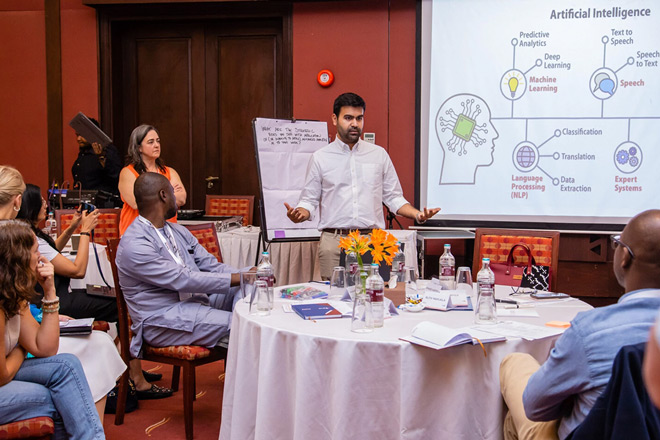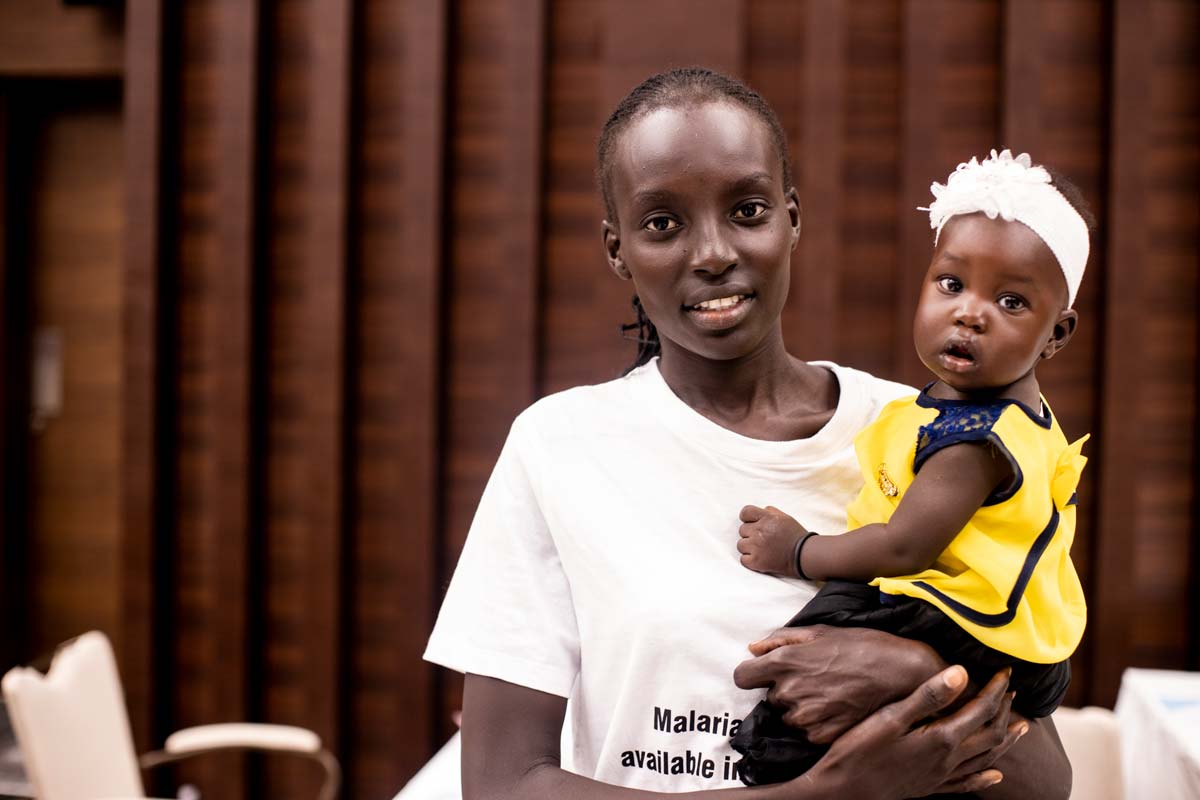Future-proofing AI in health: why we must prioritize investments in evidence, infrastructure and equity
We must invest not just in tools, but in the foundations that allow them to deliver real and equitable impact. That means putting evidence, infrastructure and equity at the centre of AI’s integration into health systems.
- 4 April 2025
- 5 min read
- by World Economic Forum

- AI has huge potential for improving global health outcomes, but realizing this potential requires long-term thinking.
- This means putting evidence, infrastructure and equity at the centre of AI’s integration into health systems.
- The Global AI Summit is a chance to shift perceptions and position African entrepreneurs as global contributors to AI’s future in health, not passive recipients.
As global AI leaders gather in Kigali for the Global AI Summit on Africa, the conversation is rightly shifting from ambition to action. At the same time, a powerful switch in narrative is taking shape. The longstanding principle of 'By Africans, For Africa' is evolving into something even more ambitious: 'By Africans, For the World.'
Nowhere is the potential for AI’s impact more urgently needed or more profound in what it can help achieve than in health, but realizing this potential requires long-term thinking. We must invest not just in tools, but in the foundations that allow them to deliver real and equitable impact. That means putting evidence, infrastructure and equity at the centre of AI’s integration into health systems.
In sub-Saharan Africa, fewer than half of health facilities have dependable power. Only 5% of the continent’s AI talent has access to the computational capacity needed for complex tasks.
Global health financing is at a critical juncture. Institutions that once played a central role in delivering large-scale health outcomes are now navigating constrained resources and growing demands. In this new reality, the question is no longer just what innovations are possible, but what is worth prioritizing. Investments must deliver measurable value, particularly where health systems are already under immense structural strains.
AI in health offers real promise. On one end of the spectrum is AI assisting in drug discovery, which rightly earned a Nobel Prize in 2024. One of the laureates has already raised $600 million to accelerate progress in this space. On the other end is AI’s application to clinical decision-making and service delivery. This area is arguably more complex, highly context-dependent and essential to the day-to-day functioning of health systems.
This is not uncharted territory. Health systems have engaged with new technologies before, often with mixed results and those experiences offer a valuable lesson. The success of AI depends not only on its capabilities, but on how and where it is implemented and with what intent. Without deliberate investment and strong underlying foundations, AI risks becoming an expensive distraction, rather than a meaningful solution.
Close the evidence gap to guide smarter health investments
Without a deliberate commitment to generating high-quality evidence on what works, for whom and in which settings, we risk overlooking the most valuable use cases, including those with the greatest potential to save lives.
One example of what rigorous, science-based evaluation looks like in practice is a collaboration underway in Kenya, where PATH and partners have launched one of the largest real-world randomized trials of AI in primary care in Africa. A large language model has been embedded into electronic health records to assist clinicians during consultations. The study is assessing whether the Generative AI-based assistant improves the quality of care and clinical outcomes in live settings. It is not a simulation or a prototype. It is a robust trial designed to fill a major evidence gap.
This work matters because, despite the growing attention on AI, there is still a lack of practical, real-world data showing how it performs in everyday clinical environments. Without that evidence, health systems risk making poor investment choices. We need more of these kinds of studies and more institutions willing to align policy and funding decisions with what the data shows.
Build infrastructure that enables scalable, inclusive AI deployment
Infrastructure is just as essential. AI depends not only on consistent electricity, reliable internet and secure digital systems, but also on access to high-performance computing. Yet, in sub-Saharan Africa, fewer than half of health facilities have dependable power. Only 5% of the continent’s AI talent has access to the computational capacity needed for complex tasks.
These gaps are not abstract. They determine whether AI tools can be used at all, let alone whether they can achieve their intended impact. Without strong, enabling infrastructure, even the most advanced AI remains out of reach for the majority. The recent announcement by Cassava Technologies and Nvidia to create Africa’s first AI factory shows that progress is possible. It is a strong start, but we need many more such initiatives to drive the kind of coordinated, system-wide investment that AI in health truly requires.
Embed equity at the core of AI design and deployment
Equity must also be a central concern. Today’s AI tools are overwhelmingly trained on data from high-income, English-speaking countries. They are rarely designed with the realities of health workers in low-resource settings in mind. Research shows that when given open access to the internet, these tools consistently cite American medical sources by default. This means they often fail to reflect the clinical, linguistic and systemic realities of the environments in which they are deployed. We cannot expect to close health gaps with tools that were never built for the majority of the world’s population.
That is why equity cannot be an afterthought. It must be embedded from the outset, not only in terms of who benefits from AI, but also in who shapes its development, deployment and governance. This is especially true in Africa, where the opportunity is not just to adopt innovation, but to lead it. The Global AI Summit is a chance to shift perceptions, positioning African entrepreneurs as global contributors to AI’s future, not passive recipients.
The Global AI Summit on Africa is a moment to chart a strategy together that rewrites Africa’s story. From Kigali, we can send a clear signal; Africa’s health systems are not waiting to catch up. They are helping to define what effective, equitable and locally rooted innovation looks like. If AI is to serve everyone, we must start with what matters most. People, systems and the evidence to connect the two.








